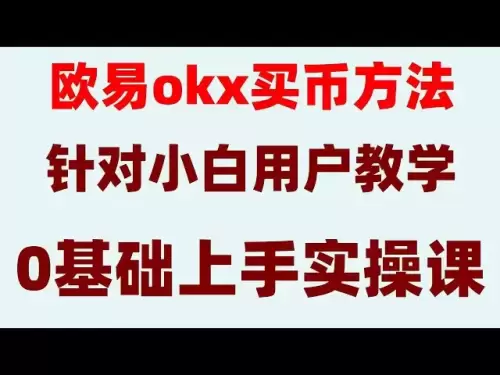 |
|
 |
|
 |
|
 |
|
 |
|
 |
|
 |
|
 |
|
 |
|
 |
|
 |
|
 |
|
 |
|
 |
|
 |
|
Cryptocurrency News Articles
In a Deepening Policy Divide Within the European Union, the European Central Bank (ECB) Has Issued a Strong Warning Over US Dollar-Backed Stablecoins
Apr 23, 2025 at 03:00 am
These digital assets concern the ECB about European financial independence. The European Central Bank needs immediate revisions to the Markets in Crypto-Assets (MiCA) regulation.

The European Central Bank (ECB) is pressing for immediate revisions to the Markets in Crypto-Assets (MiCA) regulation, highlighting the urgency in a statement released on Thursday.
The urgency stems from the European Central Bank’s concerns over U.S. dollar-backed stablecoins, which could disrupt European financial systems with large-scale financial flows, ultimately reducing the role of the euro currency and diverting funding from European markets.
The main subject of this dispute involves stablecoin regulation since stablecoins function as digital currencies that maintain value stability when tethered to traditional currencies such as the US dollar. The ECB notes that increased use of these assets presents a risk to the monetary control power that national and regional authorities hold.
The European Central Bank (ECB) is pressing for immediate revisions to the Markets in Crypto-Assets (MiCA) regulation. The urgency stems from the ECB’s concerns over U.S. dollar-backed stablecoins, which could disrupt European financial systems with large-scale financial flows, ultimately reducing the role of the euro currency and diverting funding from European markets.
“The U.S. administration and Congress are working on legislation to regulate stablecoins, which could be backed by the dollar and used in cross-border payments,” said the ECB in a statement.
The statement adds that the administration is also considering allowing a limited number of large U.S. institutions to hold a wider range of crypto assets.
The European Union's executive branch, the European Commission, has defended the existing legal framework, asserting that it provides sufficient safeguards.
"The Commission considers that the existing legal instruments are sufficient to mitigate any risks arising from international stablecoins," said the Commission in a policy paper.
The Commission claims that the ECB misinterprets the regulatory goals because the bank fails to understand the limits of EU issuers’ obligation to issue and redeem stablecoins within the European Union.
"The Commission maintains that MiCA already contains sufficient safeguards to manage the risks posed by large-scale stablecoins, taking into account the specificities of the Union's legal order and the interplay of various regulatory domains," the paper continues.
In recent discussions among EU finance officials, the Commission received wider backing for its specific position. Some European Union member states preferred to let existing rules be implemented while showing resistance to new regulations at this point. A senior diplomat from the EU expressed the weak governmental interest in revising a regulation just months after its adoption took effect.
"There is no appetite in the governments to go back to the table so quickly," said the diplomat.
The statement from the European Central Bank follows an earlier warning from ECB President Christine Lagarde, who, together with Executive Board Member Piero Cipollone, insisted on stronger regulatory measures.
Current statements from officials reveal an institutional belief that MiCA lacks sufficient power to mitigate expanding global stablecoin market risks. ECB officials warn about potential dangers in rising EU investments in U.S. debt instruments because it would increase EU dependence on external financing.
In parallel, the ECB might maintain its opposition against stablecoins because it seeks to launch its digital euro project. The introduction of this initiative marks a strategic approach against crypto asset growth while enabling Eurozone countries to maintain financial control in the increasingly digital global marketplace.
Finally, the dispute between the ECB and the Commission shows the difficulty of achieving innovation alongside effective regulations. The European Union will face an essential examination of its regulatory infrastructure between defending its monetary interests as transnational crypto operations adapt.
Disclaimer:info@kdj.com
The information provided is not trading advice. kdj.com does not assume any responsibility for any investments made based on the information provided in this article. Cryptocurrencies are highly volatile and it is highly recommended that you invest with caution after thorough research!
If you believe that the content used on this website infringes your copyright, please contact us immediately (info@kdj.com) and we will delete it promptly.



























































